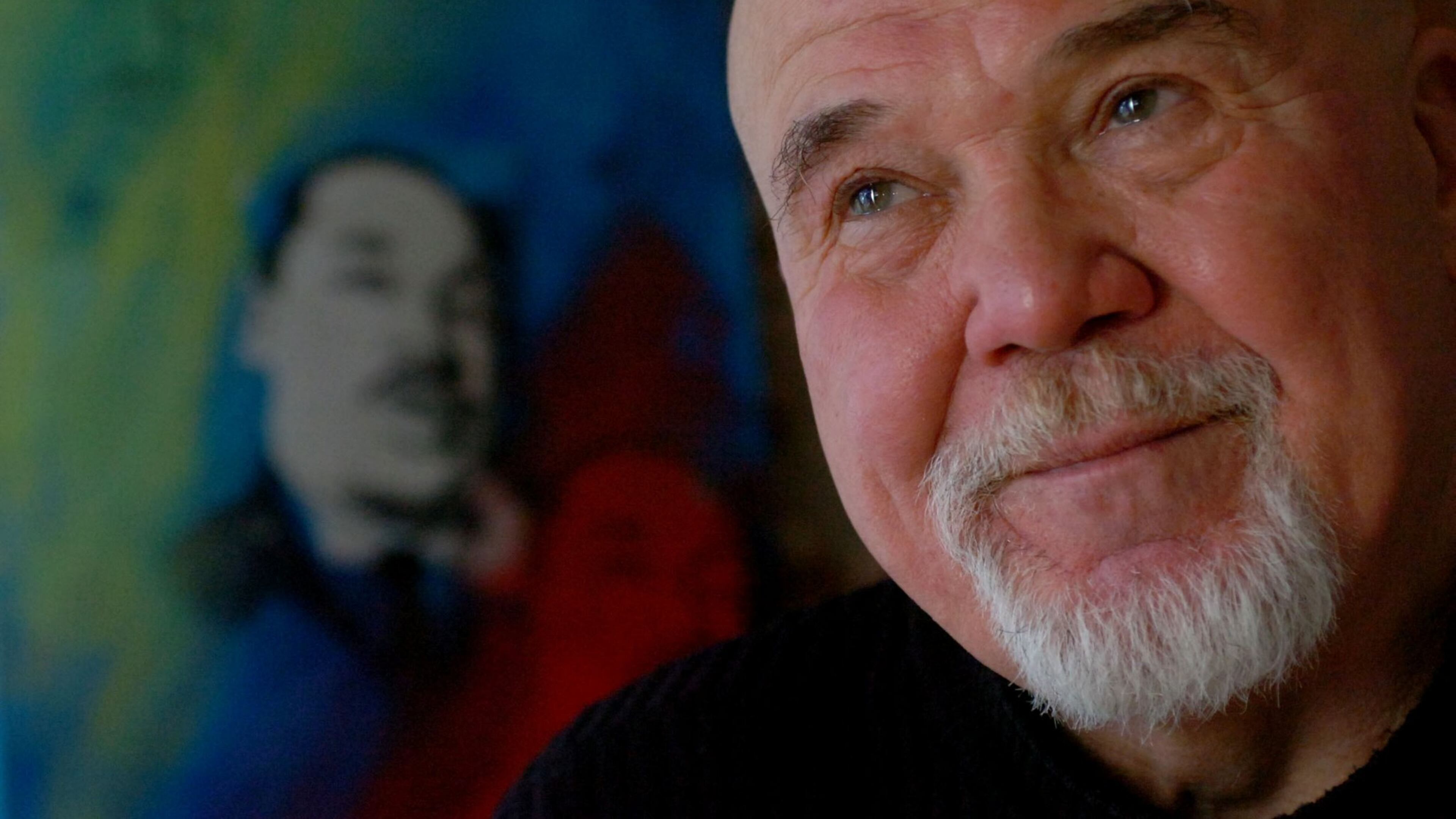Driving Into History: Tom Houck drove MLK Jr., now gives history tours

Genial, but no-nonsense. A rapid-fire delivery paired with a still-pronounced Boston accent. A sometimes-blunt crusader for justice. A skilled wordsmith and broadcaster.
Those qualities embody Tom Houck and served him well as he morphed from a key activist in the civil rights movement to a political consultant, journalist, and talk show host. For his latest act, Houck is a civil rights tour guide.
Along the way, he became an Atlanta treasure.

Snared by the goals of the civil rights movement, Houck was expelled from his Jacksonville, Florida High school for taking part in the 1965 Selma to Montgomery voting rights march. He became close friends with such icons as John Lewis, Julian Bond and, yes, Dr. Martin Luther King Jr., whom he worked for as a driver for about nine months. That became part of a longer stint aiding the King family.
Work organizing with such groups as the SCLC and Voter Education Project helped solidify the role of Black voters in a South emerging from Jim Crow. He also organized for the Poor People’s Campaign and did yeoman’s work on voter registration drives and as an informal policy adviser to many in the movement. He was arrested at demonstrations numerous times – even stabbed in the leg.
He gravitated to politics, working on and/or managing campaigns for Maynard Jackson, Lewis, Andrew Young, and Zell Miller.
From the late 1970s through the early aughts, he settled into multiple media roles: talk show host at WGST Radio, a regular on the “Georgia Gang” political gabfest, and columnist for Atlanta Magazine and Creative Loafing.
A strong drive to preserve history led to the creation of Civil Rights Tours Atlanta in 2015. After taking a hit during the pandemic, the enterprise has bounced back.
Reporter Newspapers: What pulled you into the civil rights struggle?
Houck: I tried to change the name of my high school [in Jacksonville named for Confederate general and Ku Klux Klan founder Nathan Bedford Forrest] and they kicked me out for two weeks. After what I saw happened on “Bloody Sunday,” [violent protests in Selma] I decided I’d had it with high school, and I joined the Selma-to-Montgomery march. I needed to be in the movement.
So, you worked for NAACP, SCLC, and other groups. But it sounds like the job helping the Kings out was the highlight.
Driving for [Dr. King and Family] was the greatest experience of my life. And that’s what moved me to Atlanta. I would say that when I worked for the King family, I met everybody in the sphere of the King world. That really put me into the city of Atlanta, and I stayed on here.

Any particular memories you want to share?
I’d pick up Dr. King at the airport and he’d want to drive, but he had a lead foot. He could go 100 miles an hour. Coretta always wanted to make sure I drove when I picked him up at the airport. Daddy King was a little concerned about a white guy driving around with four black kids around Atlanta in 1966 when it was still considered kind of dangerous. But Martin never had any problem with it. Neither did Coretta. We were in the front yard on Sunset Avenue where the Kings lived, playing football, and the kids would joke and call me Uncle Tom.
You maintain plenty of ties from that era I gather?
I talk to Andy Young three or four times a week. I talked to Joseph Lowery constantly before he died and CT Vivian. John Lewis was one of my best friends in the world. He would call me almost daily and wake me up in the morning. “Mr. Houck are you awake? It’s almost eight o’clock.”
You were a fixture on WGST and a panelist on “The Georgia Gang” for more than a quarter century. What’s your take on talk radio in Atlanta nowadays?
It’s a shame that the talk radio market has been taken over for almost a half-century by the extreme right in this country. When Sean Hannity came to work for WGST, I was still working there. I saw the handwriting on the wall and what was coming down. And not just WGST.
What prompted you to do the civil rights tours?
I want people to know what a great town this was. From the days of Reconstruction until today, Atlanta has a very proud history of being a mecca for African Americans both in this country and around the world. Auburn Avenue was unique.

Do you think the gains and knowledge of the civil rights movement are in danger of being lost?
I’m hoping not. Atlanta has a number of great resources. The Auburn Avenue Research Library for example. It’s a place where there is so much of a repository of the civil rights movement. There’s the Woodruff Library at Morehouse College. But there’s a real lack of teaching kids about civil rights history in this town.
Do you see the current toxic political environment turning around anytime soon?
No. I’m a very optimistic person usually, but in this case, we have a long way to go. And it’s for a number of reasons. Look at the Democrats in Georgia: they didn’t win one single statewide office this year. Let’s face reality that social media has played a huge role. We have too many Kari Lakes out there, too many Marjorie Taylor Greenes. They are the new lawless of our day.

MEET OUR PARTNER
Today’s story comes from our partner, Reporter Newspapers. Reporter Newspapers publishes free, community newspapers in Brookhaven, Buckhead, Dunwoody, and Sandy Springs. Visit them online at ReporterNewspapers.com or on Instagram @Reporter_News.
If you have any feedback or questions about our partnerships, you can contact Senior Manager of Partnerships Nicole Williams via email at nicole.williams@ajc.com.
